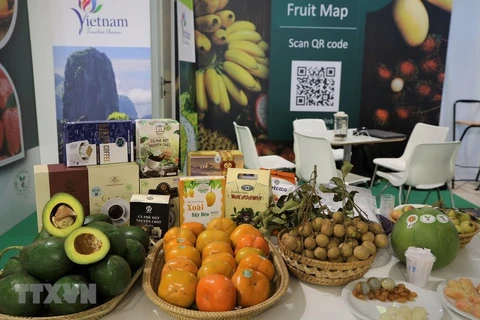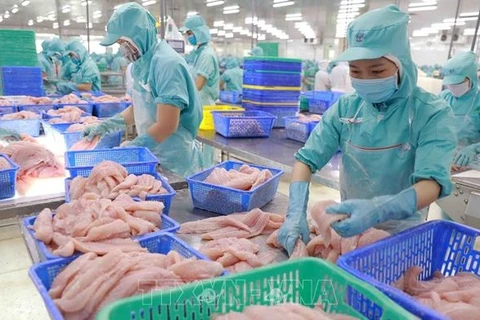Hanoi (VNS/VNA) - Boosting Vietnam’s exports to niche markets was key to minimising the impact of a looming global recession, said Vu Ba Phu, head of the Department of Trade Promotion under the Ministry of Industry and Trade.
Phu said from now until the beginning of the year, global inflation would likely continue to climb with central banks raising interest rates and consumers cutting back on expenses. As a large exporter, Vietnam would likely suffer disproportionately in trade.
A global economy still recovering from disrupted supply chains and the pandemic required Vietnamese exporters to stay vigilant and up-to-date with market changes in their traditional markets and find ways to capitalise on new opportunities.
He urged businesses to hold more trade promotional events and seek out new markets in Africa, the Middle East, the Far East, Central Asia and Latin America for Vietnamese products.
The department advised exporters to invest and focus on a limited number of products with strong brand recognition and high quality at first to create a foothold in new markets. Successful examples included exports of Vietnamese mangosteens and durians to China which have enjoyed popularity among Chinese consumers after a well-implemented marketing campaign to introduce the fruits and brand-building activities in major Chinese cities.
The campaign also reminded exporters of the importance of fully understanding market regulations and safety standards, as well as consumer preferences and product promotions.
Nguyen Manh Hung, head of the department's branch office in New York, US, said exporters must stay in touch with Vietnamese government trade representatives, which can provide them with all information on specific markets' demands and help connect them to local companies.
Hung said there was still a lot of untapped potential for Vietnamese products among different consumer groups in the US, namely the Asian-American, African-American and Latino communities.
The single most important factor, however, remained a strong adherence to US safety and quality standards as well as product-origin regulations.
During the first ten months of the year, the US remained Vietnam’s largest export market with a total export value worth 93.4 billion USD while China was the Southeast Asian economy's largest import market at 100.7 billion USD.
Vietnam recorded a trade surplus of 2.27 billion USD in October to top a ten-month period at 9.4 billion USD in surplus in comparison to a 0.63 billion USD deficit during the same period last year. The country's industrial and manufacturing sectors continued to account for a large share of Vietnam’s exports at 89.1%./.
Phu said from now until the beginning of the year, global inflation would likely continue to climb with central banks raising interest rates and consumers cutting back on expenses. As a large exporter, Vietnam would likely suffer disproportionately in trade.
A global economy still recovering from disrupted supply chains and the pandemic required Vietnamese exporters to stay vigilant and up-to-date with market changes in their traditional markets and find ways to capitalise on new opportunities.
He urged businesses to hold more trade promotional events and seek out new markets in Africa, the Middle East, the Far East, Central Asia and Latin America for Vietnamese products.
The department advised exporters to invest and focus on a limited number of products with strong brand recognition and high quality at first to create a foothold in new markets. Successful examples included exports of Vietnamese mangosteens and durians to China which have enjoyed popularity among Chinese consumers after a well-implemented marketing campaign to introduce the fruits and brand-building activities in major Chinese cities.
The campaign also reminded exporters of the importance of fully understanding market regulations and safety standards, as well as consumer preferences and product promotions.
Nguyen Manh Hung, head of the department's branch office in New York, US, said exporters must stay in touch with Vietnamese government trade representatives, which can provide them with all information on specific markets' demands and help connect them to local companies.
Hung said there was still a lot of untapped potential for Vietnamese products among different consumer groups in the US, namely the Asian-American, African-American and Latino communities.
The single most important factor, however, remained a strong adherence to US safety and quality standards as well as product-origin regulations.
During the first ten months of the year, the US remained Vietnam’s largest export market with a total export value worth 93.4 billion USD while China was the Southeast Asian economy's largest import market at 100.7 billion USD.
Vietnam recorded a trade surplus of 2.27 billion USD in October to top a ten-month period at 9.4 billion USD in surplus in comparison to a 0.63 billion USD deficit during the same period last year. The country's industrial and manufacturing sectors continued to account for a large share of Vietnam’s exports at 89.1%./.
VNA
























